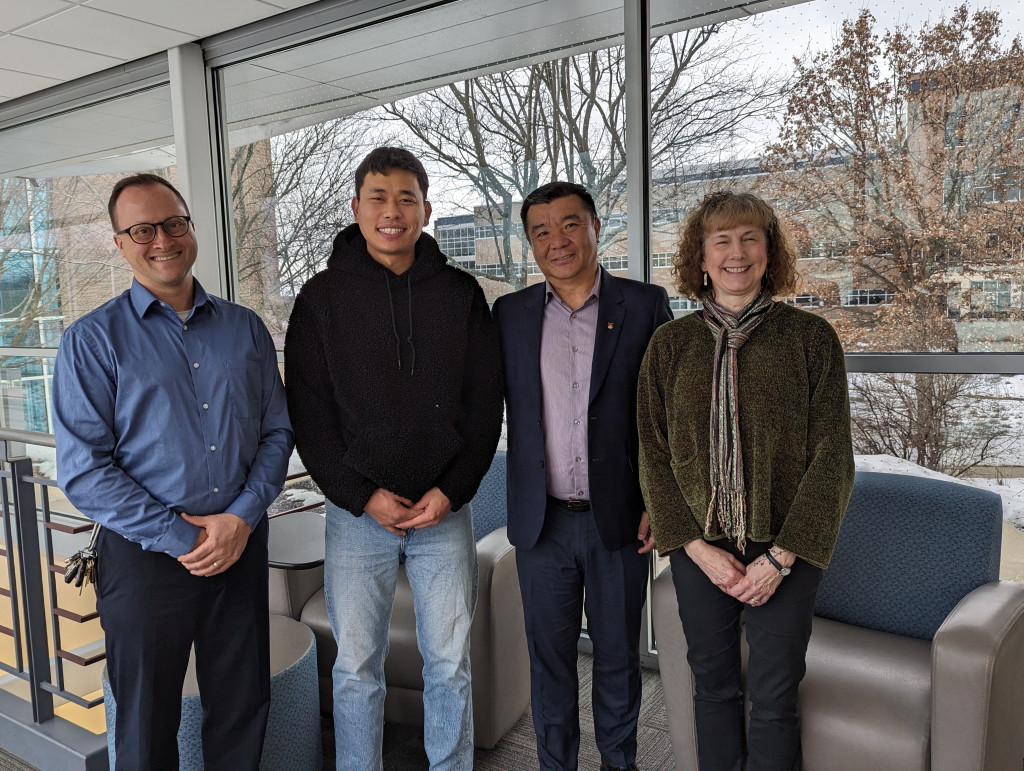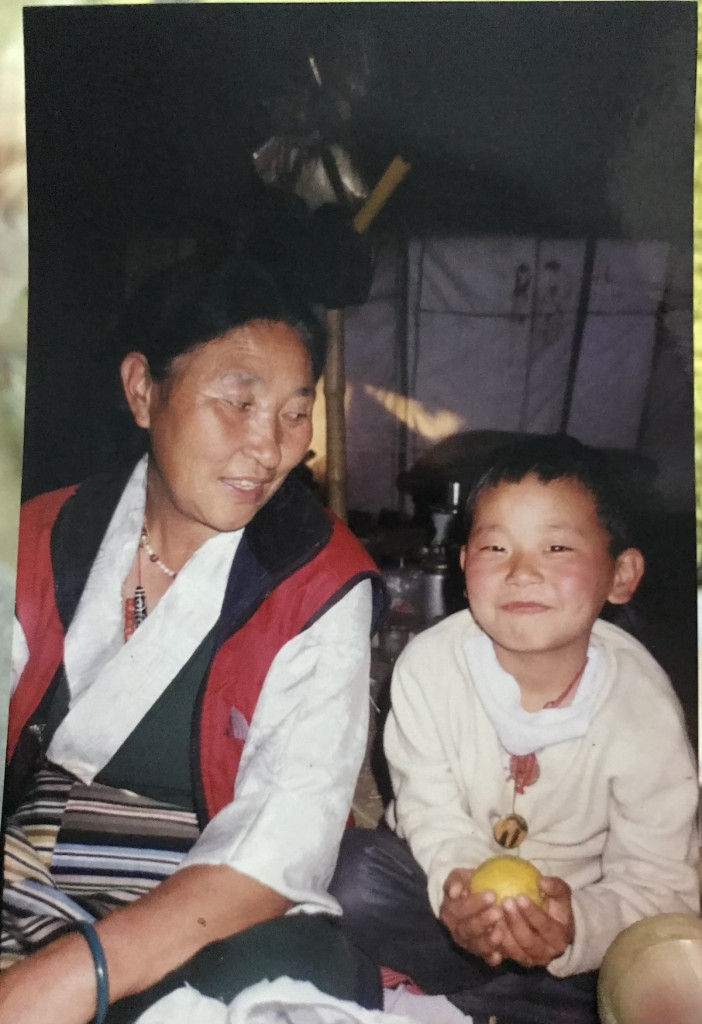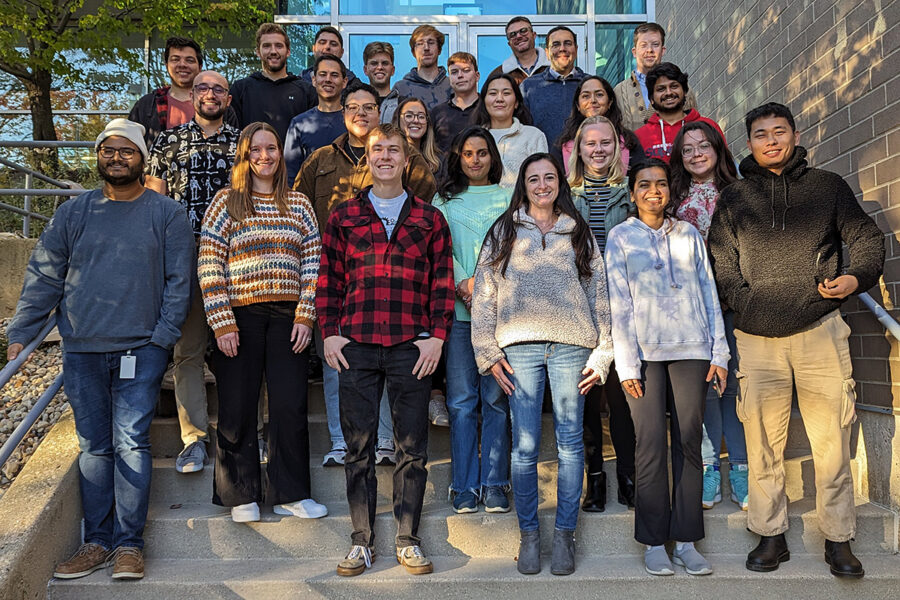UW-Madison Commencement Profile
A world away, his family and Tibetan community share in his success
Originally published by UW News on April 24, 2024
Written by Doug Erickson

During his time at the University of Wisconsin–Madison, when the academic grind got especially tough, Tenzin Phuntsok [LinkedIn] would call his mother in India for inspiration.
As a young girl, she fled the Chinese occupation of Tibet with her family, trekking barefoot across the Himalayas. Later, as an eighth grader, she was forced to drop out of school to care for her parents, both bedridden.
“She loved to learn, so it was a very, very difficult time for her,” Phuntsok says. “To this day, my mother is a strong advocate of education. She believes that if you are given the opportunity to study, you should do so without complaint.”
At spring commencement, Phuntsok will be earning a master’s degree in biotechnology. It is an achievement shared by his family and the Tibetan community in his hometown of Chauntra, India. Phuntsok, the youngest of nine children, lost his father, a Tibetan refugee, at age 4. Phuntsok’s mother and siblings provided financial and other support to help him attain his higher education goals. He holds a bachelor’s degree in zoology (with honors) from the University of Delhi and a master’s degree in applied microbiology from Banaras Hindu University in Varanasi, India.
Phuntsok’s success also is a testament to the organizations and entities that creatively found ways to help him afford his degrees, including the Master of Science in Biotechnology Program at the UW School of Medicine and Public Health.
The program stepped in to cover the costs of Phuntsok’s final semester at UW. It was an unusual move for the program — never in its 22-year history had it granted direct aid to a student. The program is revenue dependent and does not have a financial aid component. Its students are not eligible for graduate assistantships; most are working professionals.
“We just felt it was the right thing do,” says Bryan Husk, the program’s administrative associate director.
“Coming here was an uphill battle for Tenzin. We believed in him and his career goals and wanted to be part of his success story.”

Most of Phuntsok’s expenses at UW were covered by the Tibetan Scholarship Program from The Tibet Fund, an effort funded by the Bureau of Educational and Cultural Affairs at the U.S. State Department. (The financial award earlier was known as a Fulbright Scholarship.) The Tibet Fund scholarship was very generous, Husk says, yet it was clear that it would not cover Phuntsok’s full costs at UW.
“We didn’t want him to lose out on this opportunity,” Husk says. “Even though we had never sponsored a student before, we felt this commitment to Tenzin aligned with our program’s virtues and the university’s mission.”
In his UW application, Phuntsok wrote that his primary career focus is to design low-cost diagnostic machines like biosensors for the developing world. He believes affordable health care could have extended his father’s life.
Phuntsok says a middle school teacher noticed his science aptitude and invited him to give daily science presentations to the student body at morning assembly. His academic abilities and hard work later gained the support of the Central Tibetan Administration — commonly known as the Tibetan Government-in-exile — which helped fund his bachelor’s degree and first master’s degree.
At UW, Phuntsok has been a diligent and committed student, says Natalie Betz, academic director of the biotechnology program.
He’s generous in praising others and often speaks of his desire to positively impact his Tibetan community when he returns to India.
“Much of the content of the MS in Biotechnology Program has been new to him, and he is determined to learn as much as he can in this opportunity,” Betz says. “He is always willing to share his experiences from growing up in India to provide a global perspective to the topics we cover.”
Phuntsok is immensely grateful that the program took a chance on him. He’s also appreciative of everything his siblings have contributed.

“As the youngest, I benefitted from their sacrifices,” says Phuntsok, who augments his scholarship income and family contributions by working part-time on campus as a dishwasher at Gordon Dining and Event Center. “Many of my older siblings needed to forgo college to help provide for the family.”
It was the constant encouragement of his mother, Kunga Dolma, that provided the motivation to excel, Phuntsok says. In a video interview arranged by Phuntsok, his mother grew emotional as she recounted the story of having to quit school in eighth grade.
“I was made to leave not on my will,” she said, speaking in Tibetan with her son translating. “I couldn’t fight it because it was my parents. I needed to do it, but I was devastated. That is why I believe that if you have the chance, you should study as much as you can and as much as you want.”
Phuntsok’s mother will not be able to make the 7,100-mile journey to Camp Randall Stadium for commencement. Asked what she would want to say to her son on that day, she praised his hard work and career goals, then referenced the 14th Dalai Lama, the spiritual leader of Tibet and the leader of the Tibetan Government-in-exile.
“I hope you always follow His Holiness the Dalai Lama’s guidance and put effort into repaying His Holiness and all the things he has done to help his people,” she said to her son.
“Essentially,” Phuntsok said after the call ended, “she wants me to become a global citizen and to be kind, since that is how we can best repay His Holiness the Dalai Lama for everything he has done for us.”
Tenzin, you will always have the support of the "Biotech Badger" community wherever life takes you. Let us dream big together with open hearts! Congratulations!
All of us with the M.S. in Biotechnology Program
